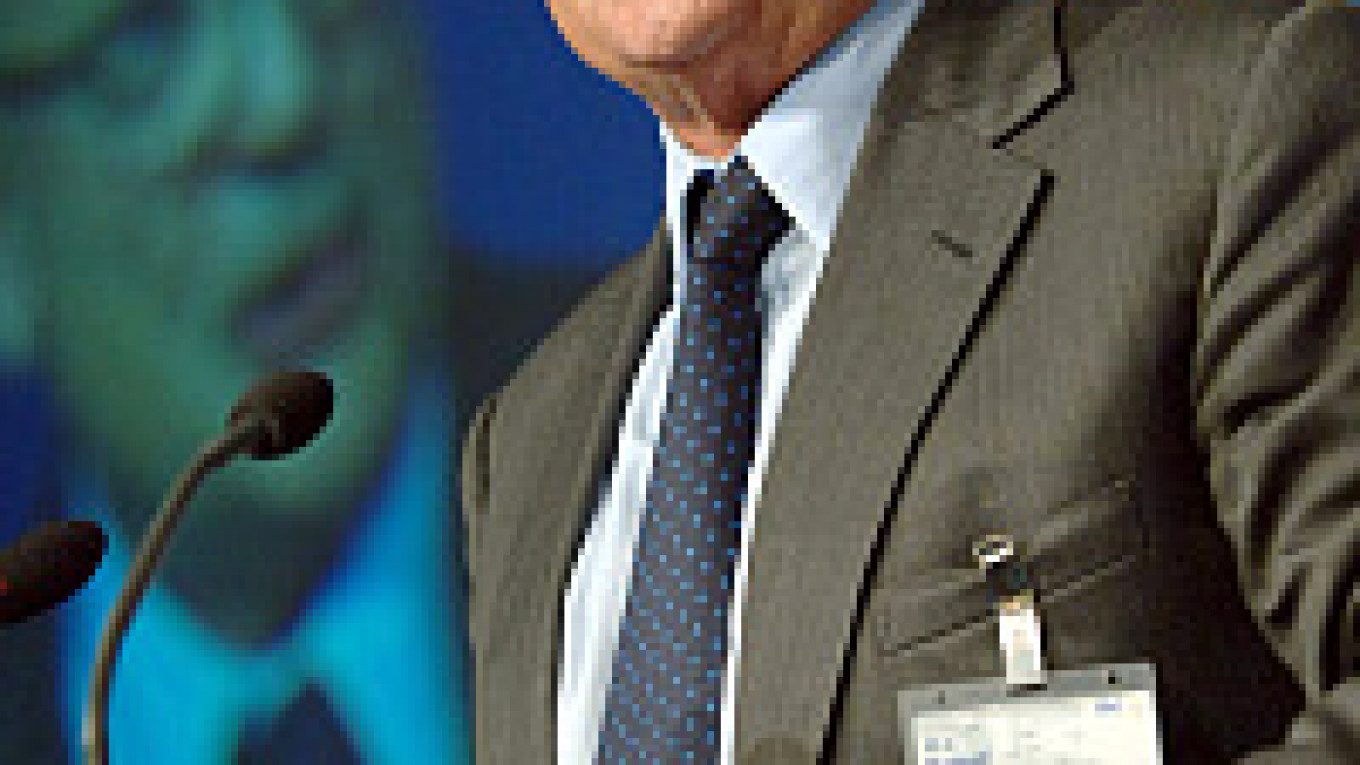Rudloff, 65, is among 12 candidates proposed by the Rosneft board for nomination at the company's shareholder meeting next month, Rosneft said today in an e-mailed statement.
Rudloff, one of the pioneers of the eurobond market, joined Barclays in 1998 after holding the top jobs at Credit Suisse First Boston and Kidder Peabody International.
Andrei Kostin, CEO at Vneshtorgbank, once the Soviet Union's foreign trade bank, and Oleg Gordeyev, the former deputy head of the Federal Energy Agency, who joined Russneft, Russia's eighth-biggest oil company, as vice president, may also be elected to the board, according to Rosneft's statement.
Rosneft plans to issue 7.4 billion new shares to swap for stock in subsidiaries in order to consolidate assets before the public offering in London. The company also plans to sell 400 million shares "by closed subscription," it said.
Rudloff met Rosneft CEO Sergei Bogdanchikov in 1993, when Bogdanchikov was developing fields on Sakhalin Island.
Barclays Capital is the investment-banking unit of Barclays.
Rudloff, who graduated in economics from the University of Bern in Switzerland, was head of Kidder Peabody in the late 1970s and chairman and CEO of Credit Suisse First Boston in the late 1980s and early 1990s.
Using a combination of charm and tirades, he commanded respect from his staff and often demanded 16-hour days from employees, according to former workers. He was a fixture at nightclubs including Annabel's in London and Club 58 in Geneva, and was known for giving extravagant parties.
Sensing a growing interest by U.S. companies in raising funds from European investors, he transformed the fledgling eurobond market into a $200 billion financing powerhouse and vaulted CSFB to the top of the underwriting tables.
After the Cold War ended, he moved CSFB into Russia and Eastern Europe as one of the first Western investment banks in the region.
Rudloff resigned in 1993 after a dispute about strategy in Eastern Europe.
Two years later, he founded MC Securities to focus on Eastern Europe, and in 1996 sold majority control of the business to Banque Bruxelles Lambert. He began winding down the business after BBL was bought by ING Groep in 1997.
 ? Rosneft said it became Russia's second-largest oil producer during the first quarter, moving past TNK-BP, after increasing output 7 percent.
? Rosneft said it became Russia's second-largest oil producer during the first quarter, moving past TNK-BP, after increasing output 7 percent.The company raised crude output to 19 million tons, or 1.55 million barrels per day, in the first quarter, Rosneft said Friday in an e-mail. That "comprised 16.3 percent of the volume produced in Russia,'' the world's second-largest crude supplier, Rosneft said.
A Message from The Moscow Times:
Dear readers,
We are facing unprecedented challenges. Russia's Prosecutor General's Office has designated The Moscow Times as an "undesirable" organization, criminalizing our work and putting our staff at risk of prosecution. This follows our earlier unjust labeling as a "foreign agent."
These actions are direct attempts to silence independent journalism in Russia. The authorities claim our work "discredits the decisions of the Russian leadership." We see things differently: we strive to provide accurate, unbiased reporting on Russia.
We, the journalists of The Moscow Times, refuse to be silenced. But to continue our work, we need your help.
Your support, no matter how small, makes a world of difference. If you can, please support us monthly starting from just $2. It's quick to set up, and every contribution makes a significant impact.
By supporting The Moscow Times, you're defending open, independent journalism in the face of repression. Thank you for standing with us.
Remind me later.


